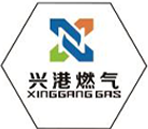
Oct . 22, 2024 01:17
Back to list
Electric Heater for Efficient Home Heating and Comfort Solutions
The Importance of Electric Water Heaters An Overview
Electric water heaters are becoming increasingly essential appliances in modern households. They provide a convenient and efficient way to heat water for various domestic needs, such as bathing, cooking, cleaning, and laundry. With advancements in technology, electric water heaters have evolved significantly, offering improved efficiency, safety, and user experience. This article will explore the advantages of electric water heaters, their working mechanism, types, and maintenance tips.
Advantages of Electric Water Heaters
1. Efficiency Electric water heaters are generally more efficient compared to traditional gas-powered units. They convert nearly 100% of the energy they consume into heat, resulting in minimal wasted energy. This high efficiency translates into lower energy bills for homeowners.
2. Safety Unlike gas heaters, electric models do not involve the risk of gas leaks, making them a safer option for home use. They also eliminate the danger of combustion-related issues, such as carbon monoxide poisoning, which can occur with gas appliances.
3. Environmentally Friendly Electric water heaters can be powered by renewable energy sources, such as solar or wind electricity. This characteristic makes them a more environmentally friendly option, helping to reduce the carbon footprint associated with water heating.
4. Space-Saving Designs Many electric water heaters come in compact sizes that can fit into tight spaces, making them ideal for condominiums and smaller homes. They can be installed under sinks, in closets, or even mounted on walls, providing flexibility in placement.
5. Lower Initial Costs Electric water heaters often have lower upfront costs compared to gas models. This makes them an attractive option for homeowners looking to replace or install a water heater without breaking the bank.
How Electric Water Heaters Work
Electric water heaters operate by using electric resistance elements to heat water. When the thermostat detects that the water temperature has dropped below a set point, it activates the heating elements. Here's a simple breakdown of the process
1. Water Inlet Cold water enters the heater through a dedicated inlet pipe.
.
3. Hot Water Outlet Once heated, the water rises to the top of the tank, where it is then directed to the hot water outlet, ready for use in showers, sinks, or appliances.
سخان كهربائي مساعد

4. Temperature Regulation The thermostat continuously regulates the water temperature, shutting the heating elements off once the desired temperature is reached and turning them on again when the water cools.
Types of Electric Water Heaters
1. Tank Water Heaters These are traditional models that store a large amount of heated water in a tank for immediate use. They are known for their reliability and are often used in residential settings.
2. Tankless Water Heaters Also known as on-demand water heaters, these units heat water directly as it flows through the device, providing a constant supply of hot water without the need for storage. This technology is ideal for households with high hot water demands.
3. Heat Pump Water Heaters These units utilize electricity to move heat from the air or ground to heat water, making them extremely energy-efficient. They are best suited for warmer climates.
Maintenance Tips for Electric Water Heaters
Proper maintenance can extend the lifespan of an electric water heater and ensure efficient operation. Here are some tips
- Regular Flushing Sediment can build up in the tank over time, leading to decreased efficiency. Flushing the tank at least once a year helps remove sediment and maintain efficiency.
- Check the Anode Rod The anode rod helps prevent corrosion inside the tank. Inspect it regularly and replace it when necessary.
- Temperature Setting Set the thermostat to a reasonable temperature (around 120°F) to prevent scalding accidents and minimize energy consumption.
- Inspect Electrical Components Regularly check the wiring and electrical connections for signs of wear or damage.
In conclusion, electric water heaters are vital household appliances that offer numerous benefits, including efficiency, safety, and space-saving designs. By understanding their operation, types, and maintenance, homeowners can make informed decisions and enjoy the comfort of instant hot water in their homes.
Next:
Latest news
-
Safety Valve Spring-Loaded Design Overpressure ProtectionNewsJul.25,2025
-
Precision Voltage Regulator AC5 Accuracy Grade PerformanceNewsJul.25,2025
-
Natural Gas Pressure Regulating Skid Industrial Pipeline ApplicationsNewsJul.25,2025
-
Natural Gas Filter Stainless Steel Mesh Element DesignNewsJul.25,2025
-
Gas Pressure Regulator Valve Direct-Acting Spring-Loaded DesignNewsJul.25,2025
-
Decompression Equipment Multi-Stage Heat Exchange System DesignNewsJul.25,2025

